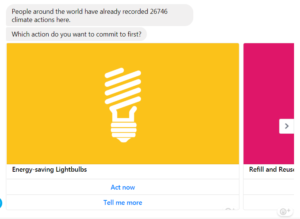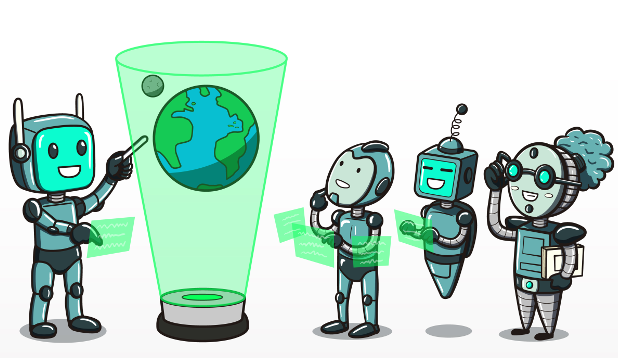Chatbots are rapidly spreading out of the customer service and business sector into personal health, self-improvement, charity, and environmental markets. Who better to ask how you can help improve your wellbeing or save the planet than a chatbot?
A few years ago, every piece of advice came in the form of a flyer or pamphlet, easily lost, and often hard to interpret or relate to any particular question you had. Over time that advice has moved into FAQs, apps or other ways that businesses, charities, and authorities use to communicate. However, most people often find that the one question they have isn’t the one that gets answered or lacks detail.
Any chatbot that simply replicates the original data and questions won’t improve the situation. But a smart chatbot that can expand on a known topic or subject area will help people get the information they need faster than other methods. Therefore it is hardly a surprise that chatbots are a big thing among environmental agencies, health charities, and similar areas, helping answer the specific questions that people have.
The UN wants you to help save the planet
Whatever the pressure on it from particular nation-states, the United Nations is still making huge efforts in trying to make the world a better place. But, across the planet, it remains up the individual to drive change. Asking “how do I save the planet?” is a common question and beyond some generic clickbait lists online, finding an answer remains a challenge.
The UN now offers a chatbot in Facebook Messenger, promoted by the mighty David Attenborough, so people can find practical answers and advice to that question, and the ActNow chatbot can help inspire users to action. It shows a range of ways that anyone can get involved in helping, from energy saving, recycling, water saving, efficient travel, going vegetarian and other options.

It might not be perhaps the most in-depth of bots, but with such a broad, global base of people to talk to, it needs to deal with the issues in broad brush strokes. But it would be good to see it link to regional or local initiatives that could provide specific information or resources, based on user location.
Financial self-help with trim
Perfectly demonstrating action at the personal level is Trim a (US-only) financial advisor that helps cut your bills, renegotiate your cable and other contracts and finds money vampires in your bank account to help you save cash. Trim uses Facebook Messenger as the interface, with secure links to your bank account and other providers to gain access to your records.
Similar services are popping up for consumers around the world, and help to make the whole market comparison/product switching process automated. Doing that will, especially in something as easy to use as Messenger, will encourage interest in what other bots can do. And, if they can maintain the one-to-one tone of voice while dealing with a wide range of customers, they will help people accept the technology.
That’s vital for areas like healthcare where people are nervous about talking about their conditions and accepting advice or information from a machine over a human, no matter how solid that advice is.
The digital doctor will see you
The rise of chatbots and AI virtual doctors will help ease the growing stress on health services, and the big names in tech like IBM’s Watson and Apple are investing huge sums to create a world where technology can track and improve our health, reducing the pressure on services.
Juniper Research reckons that Healthbots interactions will reach 2.8 billion by 2023, up from a mere 21 million in 2018. That’s as conversational AI becomes an accepted part of healthcare, helping the health providers save some $4 billion in costs.
People and patients can benefit from focused chatbots like UCB’s April chatbot who helps address the issues around Parkinson’s Disease, providing those affected with information. The Belgian-headquartered multinational biopharmaceutical company’s approach should also nudge other companies to do more to share information.
Whatever the issue, from the environment to our own health or financial well-being, chatbots are here to help, and will soon be an unavoidable part of the tech landscape. Done right, they will be a vital, possibly life-saving tool, for millions, helping bring information where it is needed.
